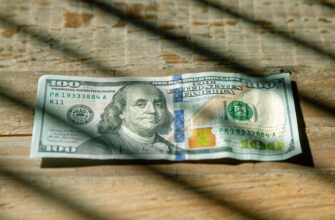Why Safety Is Non-Negotiable When Buying Bitcoin
With Bitcoin’s volatility and irreversible transactions, security isn’t just important—it’s critical. Scams, exchange hacks, and phishing attacks cost investors millions annually. Choosing a trustworthy platform protects your funds and personal data from these threats. Always prioritize exchanges with robust security protocols, regulatory compliance, and transparent operations.
Top 5 Safest Platforms to Buy Bitcoin in 2023
These regulated platforms combine top-tier security with user-friendly interfaces:
- Coinbase – FDIC-insured USD balances, 98% cold storage, biometric logins, and SOC 2 compliance. Best for beginners.
- Kraken – Military-grade encryption, mandatory 2FA, and proof-of-reserves audits. Ideal for advanced traders.
- Gemini – SOC 1 & 2 certified, insured hot wallets, and regulatory approval in 50+ US states.
- Bitstamp – PCI DSS compliant, offline multisig vaults, and 10+ years operational history.
- Cash App – Bank-grade encryption, withdrawal whitelisting, and FDIC insurance on fiat balances.
How to Vet a Bitcoin Exchange: 6-Point Safety Checklist
Before depositing funds, verify these critical factors:
- Regulatory Licenses: Check for registrations with FinCEN (US), FCA (UK), or equivalent bodies in your jurisdiction.
- Cold Storage Percentage: Ensure 90%+ of assets are held offline—immune to hacks.
- Two-Factor Authentication (2FA): Mandatory app-based 2FA (never SMS) for logins and withdrawals.
- Insurance Coverage: Look for crime insurance policies covering digital assets.
- Transparency Reports</strong: Regular proof-of-reserves audits from third parties like Armanino.
- Withdrawal Controls: Address whitelisting and withdrawal delay options.
Step-by-Step Guide to Buying Bitcoin Securely
Follow this process to minimize risks:
- Select a Regulated Exchange: Choose from our top 5 list after comparing fees and features.
- Enable Security Features: Activate 2FA and withdrawal confirmations before depositing funds.
- Use Secure Payment Methods: Bank transfers (ACH/SEPA) offer better fraud protection than credit cards.
- Verify Small Test Transactions: Buy $10 worth first to confirm platform functionality.
- Withdraw to Your Private Wallet: Never store large amounts on exchanges—transfer to a hardware wallet immediately.
Secure Storage: Protecting Your Bitcoin Post-Purchase
Exchanges aren’t for long-term storage. Use these safer alternatives:
- Hardware Wallets (Most Secure): Trezor or Ledger devices keep keys offline. Cost: $70-$150.
- Open-Source Software Wallets: Electrum (desktop) or Exodus (mobile) with encrypted backups.
- Multi-Signature Wallets: Require 2-3 approvals for transactions (e.g., Casa).
- Paper Wallets: For tech-savvy users—generate offline and laminate.
Critical Tip: Never share your 12-24 word recovery phrase digitally. Store it physically in a fireproof safe.
FAQ: Safely Buying Bitcoin Answered
Q: Can I buy Bitcoin without ID verification?
A: While some decentralized exchanges (DEXs) allow small anonymous trades, regulated platforms require KYC for security and compliance. Avoid “no KYC” offers—they’re often scams.
Q: Are Bitcoin ATMs safe?
A: Use only machines from reputable operators like CoinFlip with tamper-proof seals. Verify fees (often 10-20%) and bring a wallet address—never use printed receipts.
Q: How do I spot fake exchanges?
A: Red flags include: no company address, unrealistic promotions, pressure to deposit quickly, and broken SSL certificates. Always cross-check URLs on CoinGecko or CoinMarketCap.
Q: Is peer-to-peer (P2P) trading safe?
A: Only on escrow-protected platforms like LocalBitcoins or Paxful. Never release funds before receiving Bitcoin in your wallet.
Q: What if an exchange gets hacked?
A: Reputable platforms with insurance (like Gemini) reimburse losses. Uninsured exchanges may not—hence our emphasis on choosing regulated providers.
Final Security Reminder: Bookmark official exchange URLs, use unique passwords, and regularly monitor transaction histories. Your vigilance is the ultimate layer of protection in the crypto ecosystem.








